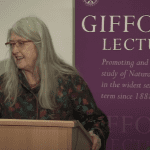My friend Max was kind enough to answer some questions about his important new book Moral Transformation in the Greco-Roman Philosophy of Mind (Mohr Siebeck, 2020).
NKG: How did you become interested in the topic of “moral transformation” in the ancient philosophers?
 MJL: How does a person change? Ever since I became a Christian my sophomore year in college at Cal Berkeley, I wondered: If sin has formed me a certain way for 19 years of my life until the day I confessed Jesus as Lord, how does life in Christ reverse this formation and change me into the kind of person God wants me to be? I pondered that question as a young Christian who struggled to live a godly life in college, I pondered it when I joined the staff of Asian Baptist Student Koinonia and started discipling students who shared this struggle, and I ponder it today as an ordained Baptist minister and scholar for the church.
MJL: How does a person change? Ever since I became a Christian my sophomore year in college at Cal Berkeley, I wondered: If sin has formed me a certain way for 19 years of my life until the day I confessed Jesus as Lord, how does life in Christ reverse this formation and change me into the kind of person God wants me to be? I pondered that question as a young Christian who struggled to live a godly life in college, I pondered it when I joined the staff of Asian Baptist Student Koinonia and started discipling students who shared this struggle, and I ponder it today as an ordained Baptist minister and scholar for the church.
As a seminary student, my search for an answer pushed me to read the letters of Paul. Paul often talks about the transformed life under the Spirit’s agency (Romans 8) and the intense struggle against the gravity of sin which impedes it (Romans 7). How does one move from Romans 7’s cry of despair “Wretched person that I am?” (7:24) to Romans 8’s victory shout that the Spirit of life has freed me from the apocalyptic power of sin and death?
At Fuller Seminary, one of my favorite doctoral seminars was Ralph Martin’s “Greco-Roman Backgrounds.” While reading widely for his seminar, I picked up an unassuming book with a provocative title, Stanley Stowers’ A Rereading of Romans (1997). I was stunned by how Paul’s struggle in Romans 7 had so many linguistic and thematic resonances with ancient philosophical discourse on the passions of the soul. Though not convinced by the overall thesis, I was nevertheless gripped by the parallels between Romans and Platonic-Stoic debates on self-mastery. Add to this my reading of Gerd Thiessen’s Psychological Aspects of Pauline Theology (1987) and a handful of Loeb Classical Library volumes on Epictetus and Plutarch, and I was hooked. What I love about ancient philosophy is that it often asks the same questions that Paul does but in a different way. The sage asks: How does a vicious barbarian transform into a virtuous Roman citizen through philosophical training? Paul puts it this way: How can the sinner transform into the saint through the gospel? Answering the former can provide insight into the latter.
NKG: What is the misunderstanding you want to address or the “gap” you are trying to fill in this book?
MJL: I attempt to do something daring in my book: to map the “moral universe” of Greco-Roman antiquity. Johan Thom in a Festschrift essay for Abraham Malherbe (2003) aptly described the problem and project of trying to find the interconnectedness between diverse moral topoi, or topics of common concern, between various religious and philosophical groups. My book contends that moral transformation is one way to organize diverse topoi into a coherent system of thought, tackling such topics as emotional control, ethical action and habit, character formation, moral progress, training, mentorship, and deity. It develops models to systematize the major tenets of the philosophical schools in Paul’s day, especially Platonism and Stoicism.
The models help the New Testament interpreter guard against the enduring problem of parallelomania. Margaret Mitchell (2001) has this hilarious analogy where she sees debating scholars akin to combatants in opposing trenches lobbing parallel texts like grenades at one another. Each thinks that he or she holds the right external literary source which can unlock the meaning of the biblical text and blow away competing interpretations of Paul. The biblical scholar often takes one topos or topic, say, the Stoic view of friendship and uses it as a foil for comparing Paul’s view of friendship and community. Sometimes a given philosophical topos is ripped away from their wider systems and read out of context or without an appreciation for how the topos fits together as part of a larger process, say, moral transformation. The models of Platonism and Stoicism presented in my book enable the New Testament exegete to place any given moral topos within an entire school of thought. They allow for a wide-angle, panoramic comparison between ancient philosophical systems and Paul’s own system or theology of moral transformation so that overall processes can be compared and not just its constituent parts.
The non-expert will also find my book to be a helpful encyclopedic reference. Rather than reading the book straight through, the selective reader could simply look up the moral topic which he/she is researching. The reader can also discern areas of continuity and innovation between the early classical founders of a philosophical school and their succeeding Greco-Roman adherents. What the Middle Platonists, for example, teach about assimilation to God is not exactly the same as what Plato teaches, and so ignoring the differences between Plato and such Platonists as Alcinous, Plutarch, or Galen could lead to a misattribution of concepts from an earlier era to those of a later one. My book helps avoid this kind of mistake.
NKG: Why should pastors and students of the NT care about conversations in the GR philosophers about the mind and moral progress?
Why care about ancient philosophy and moral progress? At stake is the missional Paul. Paul was a missionary at heart, and I think pastors and students can appreciate how the book takes Paul’s role as an apostle to the Gentiles seriously. If Paul were to communicate the gospel of Jesus Christ with language his recipient audience could understand, he had to engage the religious, philosophical, social, political, and cultural traditions which held the imagination of his Gentile congregations. He had to know how his recent non-Jewish converts were formed by pagan traditions and train them to live a new life in Christ which practiced an alternative set of moral values. In terms they could appreciate, Paul drew from the moral traditions of his day to explain how the Holy Spirit transformed the lives of believers.
Paul was a premiere intercultural communicator who could pastor and disciple his churches. He therefore modeled for his churches how to interact with the ancient pluralism of their day while maintaining Christian distinctives. The exemplum Paul sets in his engagement with the ancient pluralism also holds potential for how the church in our day can engage complex, pluralistic, and diverse ideas in the public arena. I’ve organized the potential ways Paul could have engaged with rival traditions by laying out a taxonomy of six interactions in the final chapter of my book. These interactions include: eclecticism, refutation, competitive appropriation, irenic appropriation, concession, and common ethical usage. What remains is to see how Paul uses any of these interaction types.
NKG: It seems like the book anticipates further work on Paul. Are you going to write a sequel?
The book is foundational for a few sequels, including a volume on Paul. To get a complete synoptic picture of Greco-Roman antiquity, I think it is necessary to include the influence of Epicureanism during this time period and the attempts of Diaspora Jewish exegetes like Philo of Alexandria and the writer of 4 Maccabees to present Judaism as a superior kind of philosophy. So the next sequel, already contracted with Mohr Siebeck and about half-written, is entitled Moral Transformation in Epicureanism and Diaspora Judaism: Toward a Common Ancient Ethical Tradition.
Once this book is complete (possibly 2022), I can focus on Paul. I can envision two or three books on the study of Paul in his philosophical environment. The one I’ll work on first and I’m most excited for has the tentative title: Paul and the Epicureans. It would make the case that the Corinthian wise in Paul’s letters operated from an Epicurean ethics of pleasure.
Right now, I have a spin-off book that runs tangential to the above series. I recently received the Carl F.H. Henry Center Resident Fellowship for a project on the theory of pleasure which integrates theology and science. I will be on sabbatical research leave for the entire academic year of 2020-21 to write a book on how pleasure operates (here’s a link to the project description). It will be stretch for me to tackle the topic of pleasure from an interdisciplinary standpoint. Yet, I’m simply excited that after 15 years of working on Moral Transformation in Greco-Roman Philosophy of Mind, I can focus on a different kind of book and one I think is more directly germane to the mission of the church.













